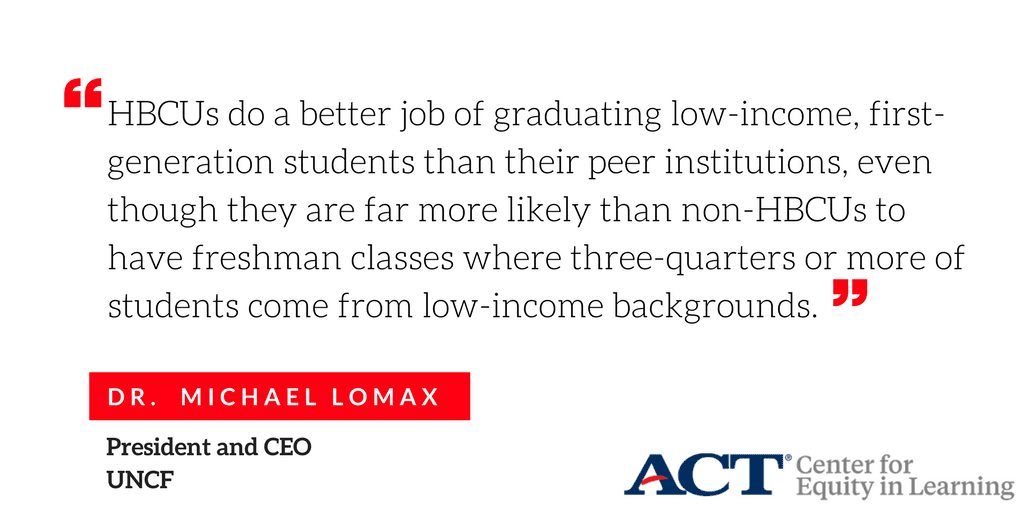By: Nycole Stawinoga, Program Manager, Research and Communications, Center for Equity in Learning

A recent report by UNCF and The University of Georgia, “HBCUs Make America Strong: The Positive Economic Impact of Historically Black Colleges and Universities,” looks at the effect of Historically Black college and Universities (HBCUs) on communities, employment, and HBCU graduates. The result: “HBCUs matter—to students, employers, communities and the nation.”
According to the report, there are 101 HBCUs in the United States, enrolling nearly 300,000 students. Approximately 80 percent of the students are African-American, and 70 percent are from low-income families. According to a recent piece by Dr. Michael Lomax, President of UNCF, HBCUs “do a better job of graduating low-income, first-generation students than their peer institutions, even though they are far more likely than non-HBCUs to have freshman classes where three-quarters or more of students come from low-income backgrounds.”
How? HBCU’s monitor their students’ progress more closely than traditional colleges and universities. “From the moment that students set foot on campus, many HBCUs carefully monitor their progress, from the president and faculty on down to counselors and support staff. Most HBCUs track whether students are showing up for classes, whether students are falling behind in their studies and whether students are making use of tutoring and support services,” writes Dr. Lomax.
These services and support help thousands of students earn Bachelor’s degrees from HBCUs each year. In fact, in 2014, HBCUs accounted for “24 percent of the degrees earned by African-Americans in STEM fields.” The report details the benefits this has on our economy. These include:
- The more than 50,000 2014 HBCU graduates can expect to earn $130 billion over their lifetimes—56 percent more than had they not graduated.
- For every one million dollars HBCUs and its students initially spend, thirteen jobs are created.
- HBCU spending generates $14.8 billion annually for the economy.
HBCUs have tremendous historical value and continue to play a critical role in the success of hundreds of thousands of students, local communities, and the economy at large. This report comes at a time when we must recognize this critical role, and is a great way for us to acknowledge the first day of Black History month today—a month recognizing and celebrating the role and achievements of Black Americans.
